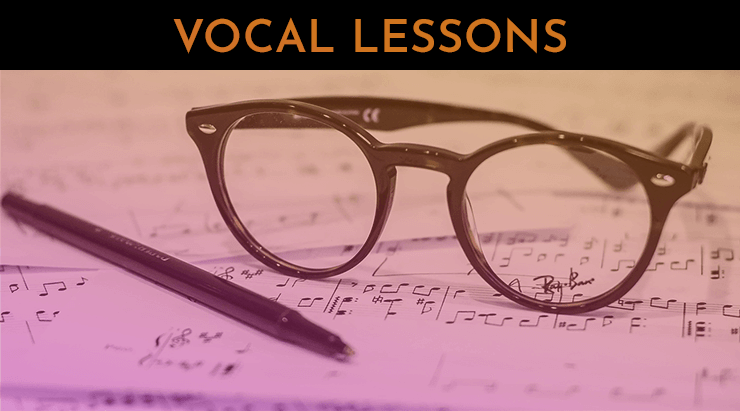30 Day Singer Blog - archives - page 15
Trilling Ins and Outs
Trilling or vocal trilling is defined technically as a rapid alternation between two notes, most often in a high register sung by a soprano or tenor and should not be confused with lip trills. At first listen, trilling might seem like an intensely shaky vibrato, but it’s in fact a very careful, technical move that can add a stunning aesthetic to a piece of music. In short, it’s a great way to show off your abilities without being too obvious about it. You may come across a term called the uvular trill, which is a vibration like the rolled “Rrr” sound in Spanish and Italian. While these are both helpful singing concepts, the classical vocal trill is the focus here.
Vocal Lessons - How to Get the Most Out of Your Lessons
 Whether you’re learning online, at school, or attending private lessons, you’ll want to get the most out of your vocal lessons whatever way you can. Vocal lessons can be costly, especially for classical training, so of course you want to get your money’s worth! But even if your lessons are free or affordable, it’s still in your best interest to be as prepared as possible to make your lessons effective and fulfilling. Here are some tips that will make you a better student and will help you appear more professional and competent as a singer.
Whether you’re learning online, at school, or attending private lessons, you’ll want to get the most out of your vocal lessons whatever way you can. Vocal lessons can be costly, especially for classical training, so of course you want to get your money’s worth! But even if your lessons are free or affordable, it’s still in your best interest to be as prepared as possible to make your lessons effective and fulfilling. Here are some tips that will make you a better student and will help you appear more professional and competent as a singer.
Musical Theatre - Developing Your Voice
Musical theatre is a combination of traditional theatrical stage plays combined with singing and dancing. When you’re singing a musical theatre piece, you’re not simply singing, but acting out a part of the story at the same time. Songs in musicals aren’t just written to sound pretty: they always have a purpose, whether that’s to advance the story, reveal a character’s hidden emotions, or add to the audience’s understanding of a character. To develop a voice for musical theatre, you need to work on your singing technique but also your ability to research a story and character and convey them with authenticity.
Belting - Best Songs for Belting
Belting is a singing technique when the singer carries their chest voice beyond its natural break, or maintaining chest voice for pitches that are usually for head voice. Are you feeling ready to develop your belting voice even more? Here is a list of a variety of songs from different genres to test out what’s the right fit for you. Not all belters are created with the same style, so it’s always good to have options. Or if you’re not feeling ready to audition or perform with these yet, they also make great songs to sing in the shower or during a long car ride.
Pitch and Intonation Live Stream
 Hi everyone! Last Sunday, one of your 30 Day Singer instructors, Camille van Niekerk streamed a lesson live. Camille went over pitch and intonation and we’re really happy that a ton of you signed up and participated by submitting questions. In case you missed the stream, you can watch it here in this blog post.
Hi everyone! Last Sunday, one of your 30 Day Singer instructors, Camille van Niekerk streamed a lesson live. Camille went over pitch and intonation and we’re really happy that a ton of you signed up and participated by submitting questions. In case you missed the stream, you can watch it here in this blog post.
Harmony - An In-Depth Guide
Harmony is an important part of all genres of music. You’ll most often hear harmonies on the refrain or chorus part of the song. This is sometimes called the “sing-along” part of a song. While the verses create a narrative, the chorus invites other voices to join in. There are a few guidelines and exercises that can help you become familiar with singing harmony.
Phrasing Vocals and How it Can Make You a Better Singer
In spoken communication, the meaning of a sentence changes depending on which words are emphasized. The words that you make the loudest are the most defined. Depending on the point of dynamic emphasis, for example, “I REALLY like you” a subtext of meaning is conveyed. It leads to the question, “What do you mean, you REALLY like me?”
The same thing is true when you are singing. Good singers only think about hitting the notes, while great singers think of phrases. Phrases become verses and choruses. Verses and choruses become songs. Great singers keep an awareness of that larger story.
Singing Style - How to Find Yours
My first singing instructor said if you want to be a popular singer that, “sounding good is not as important as sounding recognizable”. This was strange to hear as a beginner, but I realized that singing is sometimes more about art than a technique. When you turn on the radio, you may be able to recognize singers in only a few notes. Whether you like the song or not, style is an important part of becoming recognizable and connecting with your audience no matter the genre.
Vocal Range, Vocal Register, and More Vocabulary
As you learn to sing and immerse yourself in the singing community, you will hear other singers and voice coaches use terms such as vocal register, range, breaks, etc.
You likely have no idea what these terms even mean, let alone how to apply them to your own vocal development.
To make it more confusing, not all vocal pedagogist define these things in the exact same way.
So, where do you start?
Soprano Range - What is it?
The term soprano refers to the highest-pitched singing voice. It comes from the Italian word, sopra, meaning over, on top, or above. While the majority of sopranos are women, male countertenors who can sing in the soprano range are called sopranists, and young boy sopranos are called trebles.


![musical theatre]](/storage/blog_images/Singing%20for%20Musical%20Theatre.png)






